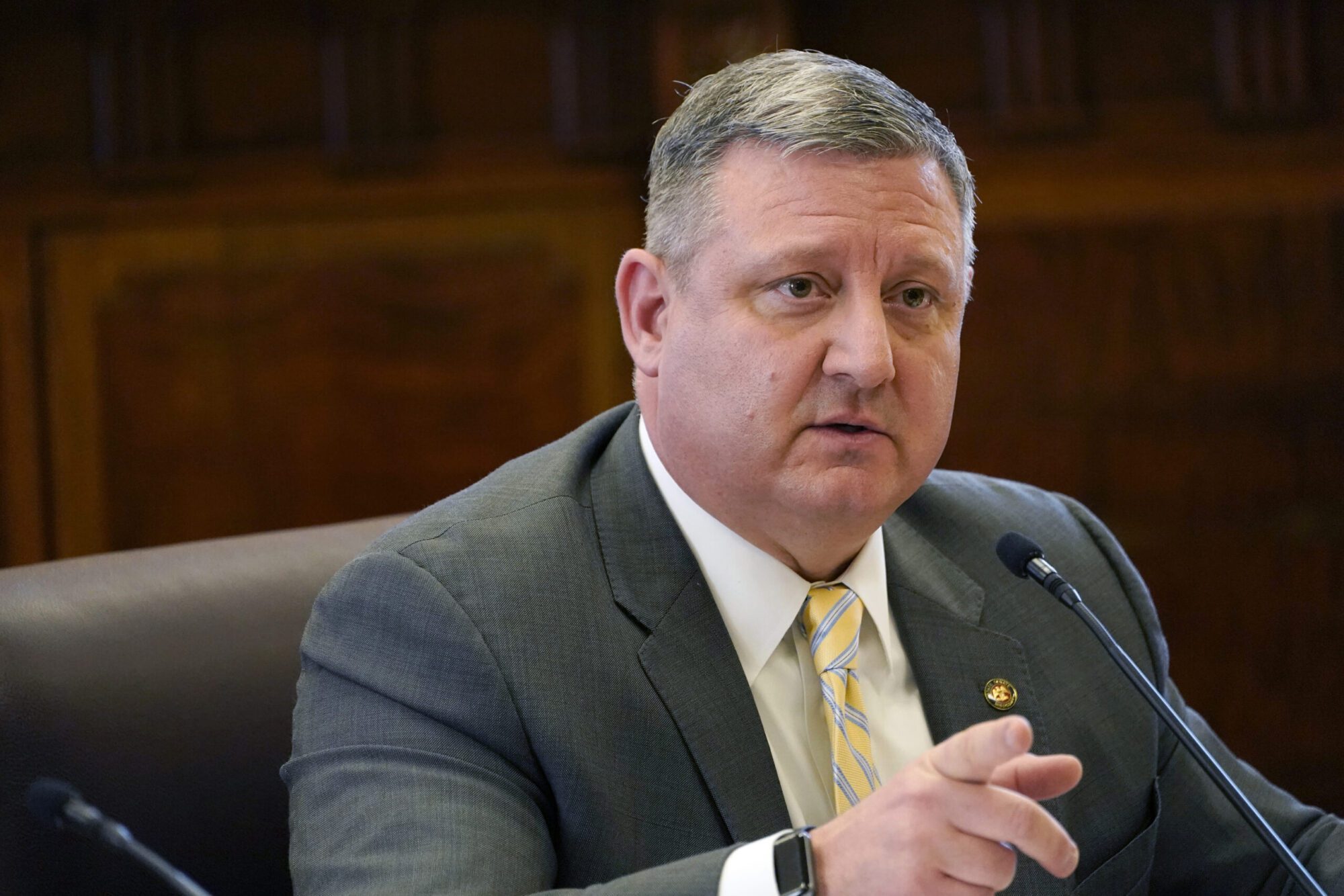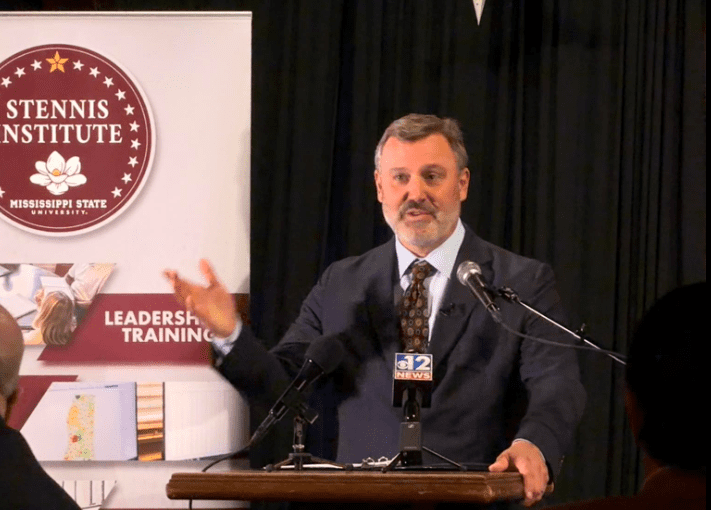
Senate Education Committee Chairman Dennis DeBar Jr., R-Leakesville, Tuesday, March 1, 2022. (AP Photo/Rogelio V. Solis - Copyright 2022 The Associated Press. All rights reserved.)
- Notably, various measures aimed at expanding education freedom for families and students in Mississippi that died in the Senate were not among the revived pieces of legislation.
The Mississippi Senate suspended its rules this week to revive certain legislation that was considered dead, inserting language from previously unsuccessful bills into a House measure aimed at clarifying provisions in the Mississippi Student Funding Formula.
“The substitute amendment before you adds several bills that you’ve seen already that passed, but the House did not bring them up and have died. Since that date, talking with the House Education Chairman, there may be some appetite to revive these bills,” Senate Education Committee Chair Dennis DeBar (R) described while on the floor Monday.
Notably, various measures aimed at expanding education freedom for families and students in Mississippi that died in the Senate were not among the revived pieces of legislation.
Among the Senate amended language this week of HB 1630 was funding for Career and Technical Education classes in grades 7 and 8.
Since the passage of Mississippi’s new K-12 education funding formula last legislative session, called the Mississippi Student Funding Formula (MSFF), educators across the state have asked the Legislature to include a missed category, 7th and 8th grade CTE courses. The MSFF employs a weighted system to provide school districts with additional funding for specific categories, one of which was Career and Technical Education.
While high schools across the state received additional funding to help support CTE classes offered to students in 9th through 12th grades, some schools with CTE classes in 7th and 8th grades missed out on the additional funding.
Senator DeBar said the estimated additional cost of adding those two CTE grade levels to the funding formula would be $20 million to $25 million annually.
The amendment also included a revision to a measure passed last session that allows retired teachers to return to the classroom while still collecting their state retirement in an effort to address the ongoing teacher shortage. This year’s revised version of that bill could allow retired administrators to return to the classroom while still collecting their state retirement, up to 150 percent of their pay.
“It will allow for administrators to come back and teach and be afforded the same pay as well receive their retirement as the teachers were,” DeBar said. “But they have to come back and teach. They can’t be administrators.”
The Senate also inserted language aimed at requiring school districts to establish cell phone restrictions to limit classroom distractions during instruction time. The issue has been a Senate priority this session but was not viewed as such in the House. The amended version of HB 1630 now includes the Senate’s failed bill that would task school districts with developing a cell phone restriction policy for students.
Monday’s amended bill also revived a Senate bill that would establish financial literacy classes for students in grades 6 through 12. Instruction would include financial decision making, saving and spending, using credit, and budgeting. If the bill becomes law, those classes would begin in the 2026-2027 school year, and by the 2031 school year, all potential high school graduates would be required to pass a financial literacy test.
Other actions revived by the Senate included in the amendment would allow the DuBard School for Language Disorders at the University of Southern Mississippi in Hattiesburg to receive $200,000 in additional funding and allow members of local school boards to receive state health insurance, which would be paid for using local funds.
The measure passed the Senate as amended and was returned to the House for concurrence.











